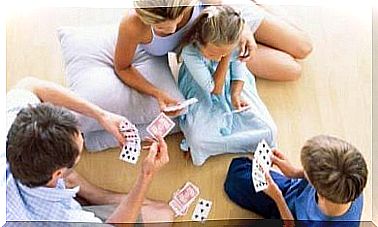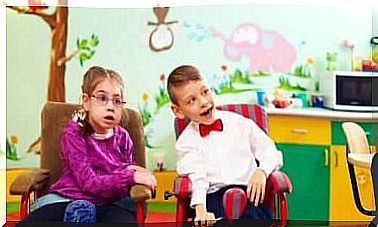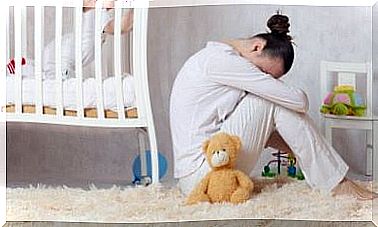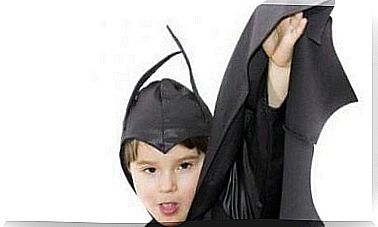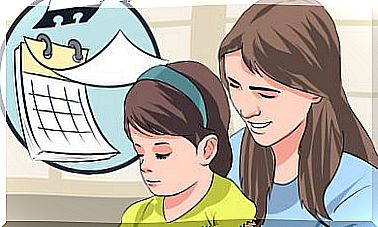Some Common Myths About Introverted Children
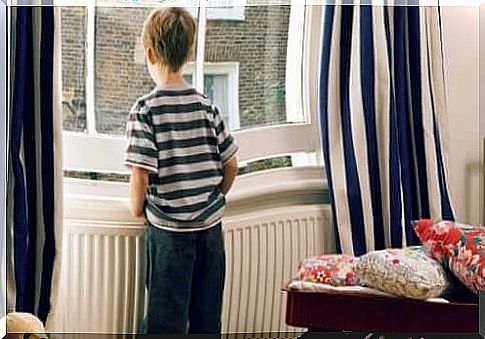
There are many myths about introverted children. Many of these misconceptions come from their behavior in the classroom, such as when teachers perceive a lack of participation or a limited interaction with other children.
Interestingly, the opposite behavior is also a cause for concern among teachers and parents. It seems that there is no clearly defined middle ground.
Children’s personalities are so different. Categorizing each child in a behavioral model would be an impossible task for teachers.
Main characteristics of introverted children
In general, introverted children choose to maintain a few relationships. They are also very selective with which people they spend their time with. This allows them to enjoy to the fullest the time they spend with their close friends.
Another characteristic of introverted children is that they are usually empathetic, thoughtful individuals and good listeners. When they need to perform tasks, they prefer to do them alone or with little company. They also feel personally affected when they make mistakes.
Some myths about introverted children
Below we present and analyze some myths and stereotypes that exist around introverted children. We’m sure you’ve heard some of them before:
“An introverted child is the same as a shy child”
A common confusion with the term “introvert” is that it means the same thing as “shy”. However, this is not really true.
On the one hand, shyness refers to the feeling of discomfort in the face of social situations, associated with anxiety. Introversion, on the other hand, is the need for alone time to develop ideas and recharge energy.
An introverted child can function well in social contexts. But it still feels the need to have time for itself as well.

“Introverted children are not normal”
Unfortunately, this is one of the myths that is often spread by word of mouth. Introverted children are labeled “weird” because they do not try to be like the majority.
In fact, they are individualists who want to be valued for their way of thinking. Unlike many other children, introverted children are not very much guided by popularity in their decision-making.
“Loneliness is their only friend”
Introverted children like to spend time themselves thanks to their analytical and thoughtful nature. But that does not mean that they do not like company as well. Rather, they establish selective and qualitative relationships with a small number of peers.
Their minds are a productive machine with fun solutions, which they enthusiastically share with their friends.
“Leadership is not their thing”
Contrary to many people’s beliefs, introverted children are a great asset to teamwork environments. Like extroverts , introverts can be excellent leaders. They stand out because of their brilliant ideas, empathy and a qualitative critical thinking.
When communicating with an audience, they tend to have a clearer idea of what they want to contribute. This is because they invest a lot of time in defining and developing their ideas.
“They do not like to talk”
If they really have nothing to say or are not interested, introverted children will remain silent. But they are more than willing to have their say when a topic catches their attention.
Introverted children are generally better listeners and observers than speakers. Impulse rarely motivates them to start a conversation. Rather, they are more likely to carefully analyze their views before sharing them.
Their inner monologue never ends. Whether they are heard by those around them or not is nothing that keeps them up at night.
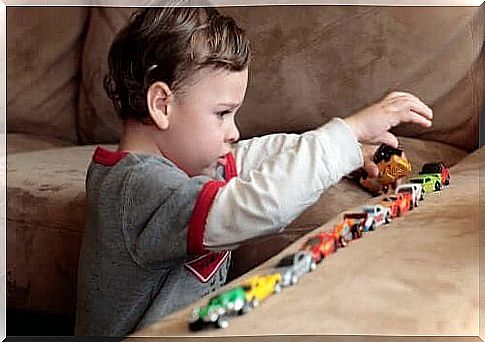
“They do not relax and do not have fun”
Introverted children find entertainment and relaxation in contact with nature or a favorite place in the home. Public places and places that are full of people do not appeal to them.
They have no desire for strong emotions or adrenaline rushes. Many people who talk at the same time and excessive sound can make them withdraw.
Activities that involve less stimulation are more acceptable. For example, solving sudoku puzzles, reading or helping a friend solve a problem are more attractive activities.
Introverted children value their alone time, which they use to work out their ideas and projects.
“They are negative and depressed”
Many people misinterpret introverted personalities as negative because of their penchant for being alone. On the contrary, their extroverts tend to become depressed when they go for long periods without company.
But the opposite is true for introverts. Spending time alone is an important part of introverted people’s sense of well-being.
Now that you have read more about these common myths, we are sure that you have gained a better understanding of introverted children.
